https://arktimes.com/arkansas-blog/2021/09/29/rolf-kaestel-expeced-to-be-freed-from-prison-oct-12
Rolf Kaestel expected to be freed from prison Oct. 12
Rolf Kaestel, 70, imprisoned for 40 years for robbing a Fort Smith taco stand with a toy gun, was approved for parole by the Arkansas parole board last week and is expected to be released from the Utah prison where he’s been held on Oct. 12.
The Daily Beast reported on the latest development in the case.
The article reports that the victim of his robbery, Dennis Schluterman, who’s advocated for Kaestel’s release, will be on hand for Kaestel’s release. Also, there will be another advocate, Kelly Duda, who did a documentary on a prison blood selling scandal in Arkansas. He’s insisted Kaestel was transferred to Utah, and his release was opposed for years because he provided information about that scandal.
The parole board had recommended clemency for Kaestel three times. Hutchinson, who’s once refused it, commuted his sentence on the last try.
Photos Courtesy Arkansas Dept. of Corrections
Man Who Got Life for Toy Gun Robbery Will Finally Walk Free Next Month
Rolf Kaestel got a life sentence for a small-time robbery where no one got hurt. The Arkansas parole board has voted to release him after The Daily Beast’s report on his case.
The Weather Inside
The prison system seems intent on ensuring that a man convicted of stealing $264 in 1981 dies in jail.
By Colby Frazier @colbyfrazierlpIn summer, when the alfalfa sits in perfectly raked heaps in the fields of the Sanpete Valley and the sun plots its ruthless course across a wide blue sky, it can be counted on that Rolf Kaestel, Utah State inmate No. 137752, is doing what he can to feel the sunlight on his skin.
And in winter, when snowstorms bear down on the remote town of Gunnison, Utah, home to the branch of Utah State Prison where Kaestel lives, it is likely that he is taking it all in from a small concrete silo open to the sky, marveling at the table scraps of nature he is allowed, and listening to the silence of the storm as snowflakes collide and melt on his bald head.
To Kaestel, who in 1981 was convicted of aggravated robbery after stealing $264 from an Arkansas taco shop, nature has become a sacred part of his life behind bars. In Arkansas, where he served the first 19 years of his life-without-parole sentence, Kaestel says he found the energy to remain behind bars by lying in the clover grass, listening to the insects.
But nothing beats the sun.
"To me, the feeling of the sun on my skin is the best thing in the world," Kaestel says. Now 66, Kaestel remembers the days he ran for five miles around the prison yard, allowing the sun to sap the salt from his body. He loved pulling on his shirt after a run, feeling it crinkle against the salt on his skin.
It is the weather, and nature, that Kaestel and I often jaw about in letters, and when we meet in a white painted cinderblock cafeteria in the prison. Visits last two hours, there are soda pop and candy machines, and if Kaestel must rise to use the restroom, or stands for any reason, the visit is over. Since 2014, when I wrote a cover story for City Weekly about Kaestel, we have exchanged dozens of letters. And during his 17 years in Utah, he has had three visitors, all named Colby Frazier.
For nearly a year now, Kaestel and anyone who knows about him have been grappling with the news that Arkansas Gov. Asa Hutchinson denied the man's most recent request for clemency. This means that Kaestel will be in his 70s before he can reapply for freedom.
His hopes of seeing the seasons change without razor wire obscuring the view blur with each day he spends behind bars.
It occurs to me that this should not bother me like it does; it does not seem to bother anyone outside of a handful of individuals who have come into contact with Kaestel over the years. But there is something about this man—specifically, about the fiction-like circumstances that led to his nearly 40-years-and-counting of incarceration, and the seemingly unbeatable forces that keep him in prison—that is just plain bothersome.
Mara Leveritt, an Arkansas writer who has chronicled politics and criminal justice for more than 30 years, says that for her, Kaestel's story is unforgettable because his continued incarceration speaks to a part of our humanity—our collective vengeance—that most people do their best to ignore.
Even now as six Arkansas governors have come and gone over the years, all of them failing to address the continued imprisonment of Kaestel, the man himself has greeted the reality that he might at last perish in prison with a level of grace and forgiveness that, under the circumstances, seems preposterous.
"Needless to say, it stings deeply once again but it is not an entirely unexpected thing," Kaestel wrote in a letter postmarked Dec. 21, 2015, of the denial of his clemency request. "Admittedly, this time around the denial of clemency brings with it a new kind of reality, and one which generally has caused me to take a couple of months 'out' to reassess the overall situation and to see if or how I should implement a new life direction. I'll now be in my 70s before I'm eligible to reapply for clemency again—and with average life expectancy in the low 70s nowadays—well, it's not looking all too hopeful that I'll ever be outside again. Or perhaps not as a free or healthy man."
Wild Youth
If the purpose of prison is to punish, then punish it has done. Kaestel entered prison in 1981—a year before I was born—at the brash age of 29.
He has no idea if his parents are alive, nor if he has any relatives—distant or close—to whom he could call family.
Born in Germany in 1950, Kaestel remembers little of his early childhood. For him, the memories begin around age 6 or 7, in a German orphanage, when a woman in a black sedan arrives and brings him candy. The man in the car does not bother to get out. A short time later, the woman, whom he assumes but is not certain is his biological mother, arrives and takes Kaestel away for good.
The family moved to Alabama, where the trouble-prone Kaestel blossomed into what he said in a 2014 interview was a "true juvenile delinquent."
By seventh grade, Kaestel had put school behind him, and his family returned to Germany where young Kaestel found trouble with ease. Upon the family's return to the United States, Kaestel says he and his parents parted ways. He never saw them again.
Over the next decade, Kaestel found trouble at will, serving stints in prison in Alabama, and two years for robbery in New Mexico. He stole cars to visit girlfriends in other towns, and then stole cars to return home.
Once, he says, he broke a store window and carried a gumball machine out into the street. He then smashed the machine, "just to watch all the bubble gum roll down the street."
Kaestel's string of bad behavior took its final gust of breath in the free world in 1981. As he hitchhiked across the country, he ended up in a vehicle with four people, none of whom had any money. By this time a cunning robber, Kaestel shouldered the weight, siphoning gas from cars and committing robberies. During robberies, Kaestel said in 2014 that his methods were simple and nonviolent: He would ask a store clerk for cash and receive it. If no one was manning the register, he would remove the money and leave.
But at a Bob's Taco Hut in Fort Smith, Ark., Kaestel, armed with a water gun he'd purchased at a toy store, flashed the gun at the cashier and walked away with $264. He was arrested that same evening and charged by Sebastian County's ambitious and proud prosecutor at the time, Ron Fields, with aggravated robbery.
At trial, Kaestel opted to represent himself. Despite his shortcomings in the classroom, he held his ground in court. In 2014, a clerk at the Sebastian County Courthouse told City Weekly that Kaestel's file is stuffed with around 400 pages of hand-written motions, including one asking for a separate trial from the other defendants, another seeking release of evidence from prosecutors and many more asking the judge to suppress evidence.
In the end, though, a jury found Kaestel guilty and handed down a punishment that is often reserved for murderers and serial rapists: life without the possibility of parole.
Once condemned to prison, Kaestel plotted a scholarly path toward a paralegal certificate. He filed scores of lawsuits against the notorious Arkansas prison system, which in the 1970s had been designated by federal courts as being cruel and inhumane. Along with winning some of his suits against the prison, Kaestel advocated for prisoners' rights, quickly becoming a problem child—the kind that manifests itself in articulately written legal briefs—for prison officials.
"Rolf was a very informed prisoner when he was in Arkansas," Leveritt says. "He studied the law, he helped other inmates, he became a thorn in their side, I think, of the establishment—the prison department in particular."
One of the Arkansas prison system's misdeeds Kaestel witnessed involved a blood-plasma donation program. Kaestel himself donated plasma—a way he and other inmates could make a couple of bucks. But Kaestel noticed health concerns with the blood plasma program, including lack of testing for hepatitis C and HIV. He began collecting documents on the plasma program and even appeared in a documentary film, Factor 8: The Arkansas Prison Blood Scandal, released in 2005.
It begins with Kaestel—already with 18 years of prison under his belt—saying on camera in front of a prison official that the Arkansas prison system is ripe with "graft, corruption and money making."
In 1999, a short time after being interviewed for the film, Kaestel was hauled out of the breakfast line, loaded into a van and moved to Utah.
No one in the Utah prison system knows why state taxpayers spend roughly $28,000 per year to warehouse a man who has no connection to this place. In Arkansas, the only official explanation City Weekly has ever received says only that Kaestel was moved because of "noncompliance with the Arkansas system."
Leveritt, though, says she has some idea why Kaestel was spirited out of the South and deposited in a land where he did not know a soul.
"Kaestel's lawsuits and activism—all perfectly legal—antagonized state officials, no doubt about it," Leveritt says. "That's why he's in your state. They removed a problem. And it wasn't to get him closer to family. It hasn't got to do anything but get him out of their hair."
Vengeance
Rolf Kaestel did bad things, and he says that he knows he deserved to pay a price. But if the legitimacy of the justice system rests at all on the axiom that a punishment ought to fit a crime, then legitimacy is a fleeting word in Kaestel's case. By way of comparison, Brian David Mitchell, who was convicted of abducting and raping Elizabeth Smart, received a life sentence in the federal prison system.
Kaestel's lone hope has long rested on the shoulders of Arkansas governors, beginning with Bill Clinton, Frank D. Right, then Bill Clinton again and on to Jim Guy Tucker, Mike Huckabee, Mike Beebe and now, Asa Hutchinson.
Kaestel estimates that he has applied for clemency 10 times during his 35 years in prison, and has been recommended for release by seven different parole boards—five in Arkansas and two in Utah.
Granting of executive clemency in Arkansas is not unheard of. When Hutchinson denied Kaestel's most recent request, he pardoned nine people. Most were drug offenders, while one was convicted of negligent homicide in 1990. Along with the denial of Kaestel's application, 41 others were also turned down.
Clemency has, as it seems to at the conclusion of any presidential term, been receiving attention. So far in 2016, President Barack Obama has granted clemency to more than 100 federal prisoners, and there are efforts afoot to encourage the president to set many more men and women free before the end of his term.
In June, dozens of legal scholars, law professors and prisoner advocates penned a letter to Obama, urging him to begin granting clemency to the more than 1,000 people estimated by the U.S. Justice Department to be eligible. At the time the letter was written, Obama had granted clemency to 348 prisoners.
One of the letter's signees was Carissa Byrne Hessick, a former University of Utah law professor who is now the Anne Shea Ransdell and William Garland "Buck" Ransdell Jr. Distinguished Professor of Law at the University of North Carolina.
Hessick says that while federal clemency receives much of the attention, Americans should not lose sight of the fact that the vast majority of prisoners—like Kaestel—are serving time for state crimes, in state prisons, where governors are their only hope for mercy.
"People who care about clemency need to start paying attention to clemency in the states," Hessick says. "At the end of the day, the people who make these decisions are elected by voters, and voters need to care about these decisions."
Of course, politics, or the protection of one's political future, is often in play when clemency and pardons are discussed. If a governor grants clemency to a prisoner who then reoffends and commits a terrible crime, it garners massive attention and can have political reverberations.
For this reason, politicians are undoubtedly cautious when granting clemency. But Hessick says that the thought process should not solely focus on the possibility of a person committing more crime when they are free, but also take into consideration whether or not an injustice is occurring by failing to pardon.
In Kaestel's case, blame for his continued incarceration lies squarely on the proud shoulders of the Natural State's governors, who have neglected to take the advice of multiple parole boards that have all insisted that Kaestel is prime for release.
In 2012, Don Blanchard, a former member of Utah's Board of Pardons, conducted an interview with Kaestel, the results of which were forwarded to former Arkansas Gov. Beebe. "I believe the ends of justice have been served in this case, and urge both the Arkansas Parole Board and the governor to grant clemency and a release," Blanchard wrote.
In 2013, Beebe declined to take action on Blanchard's letter, and on Kaestel's application for clemency. This left the door open for him to reapply. But the next time Kaestel's paperwork ended up on an Arkansas governor's desk, Hutchinson—a Republican and former federal prosecutor—was in office. For reasons that neither he nor any of his staff have agreed to address, Hutchinson took Kaestel's request a step further than some other governors by denying it, ensuring that Kaestel will remain imprisoned for at least another half decade.
It is easy to forget—perhaps by design—that society's collective human collateral is impounded away someplace distant, safe and secure.
But the more life we all live, a nugget of wisdom which sounds almost Christ-like, and might well be, becomes true: A measure of how great, prosperous, kind and true a society is can be tabulated by taking a long look at how it treats its most disenfranchised classes.
And so it is that in every dime spent to keep Kaestel and every other man, woman and child locked away in America, I can see my own face.
If there is injustice in the continued imprisonment of Kaestel, each and every one of us are responsible, complicit and financing parties to the injustice. And in Kaestel's case, this injustice compounds at an ever rapid rate, with every day of his life that he continues to pay for that $264.
"The fact that nobody in the legal system is willing to address that, to even acknowledge that the problem exists, it just perpetuates and continues the problem," Leveritt says. "And every day that goes by makes it worse. Every day that he is kept in prison makes our own responsibility for this that much greater."
Justice Reform
In Utah and elsewhere around the country, there has been much talk in recent years about the unsustainable number of Americans locked in prisons, and the mountains of money it requires to keep them there.
Utah's answer to the problem came in 2015 and was a carrot of sorts to convince the public that the main branch of the Utah State Prison in Draper should be moved elsewhere to pave the way for large-scale development. The result was House Bill 348, known as the Justice Reinvestment Initiative. According to the Pew Charitable Trusts, which tracks justice reform, Utah's efforts will eliminate prison growth over the next 20 years by installing a number of measures, including downgrading first- and second-time drug possession charges from felonies to misdemeanors. Additionally, tens of millions of dollars will fund programs to help reduce recidivism.
As the Utah Legislature contemplated its bill, it wasn't unusual to hear politicians talk proudly about how they could save taxpayers money and lessen the burden on the criminal justice system by reducing unreasonable sentences and, ideally, preventing people from entering the prison system to begin with.
Kelly Duda, who directed the Factor 8 film and interviewed Kaestel in Arkansas, says that it is hard for him to have any faith in the criminal justice system while Kaestel, who he says is a "poster boy for rehabilitation," is left to rot in prison.
"The whole notion of rehabilitation is a farce," Duda says of Kaestel's case. "In religion, there's the idea of being saved, or being forgiven or redeeming yourself, and a prison system without a notion of redemption is just a write-off."
As is the case with Leveritt, the name Rolf Kaestel never drifts too far from the thoughts of Duda, who loosely maintains a "Free Rolf" Facebook page.
Because he has no sense of what it's like to spend his life behind bars, Duda says he has never considered himself a close friend to Kaestel. And when he interviewed him for the film, he says he did so with a level of trepidation not unfamiliar to many journalists, who must weigh the truthfulness and credibility of their sources. And prisoners—whether imagined or real—have a massive credibility handicap for no other reason than that they were convicted of a crime.
Still, though, there was something about Kaestel that Duda could not let go, and for 17 years now, he has not been able to escape the knowledge he has about the man's plight.
"I think the person I met was a changed man who cared about others and actually cared about the system; who saw his wrongs and tried to right them and who saw other wrongs and wanted to right them," Duda says of Kaestel.
Letters From Rolf by City Weekly on Scribd
There might not be many more chances for Kaestel to even file the paperwork necessary to ask an Arkansas governor to set him free.
This is not lost on Kaestel, who after being denied clemency last November, says he took a short time to reassess his priorities. Priority No. 1, he says, is his writing. To date, he has penned roughly 400 pages. Much of the writing details Kaestel's religious philosophies (he is a devout Christian, who can write for pages and pages about his beliefs). He is also writing about his life—his wild times as a criminal, his lawsuits with the Arkansas prison system, his conversion and his time in prison.
"These writings are my purpose—my legacy—and I will give myself to that completely," Kaestel wrote in a February 2016 letter. "I see now that all of my life has flowed toward this end. And that's a very peaceful awareness."
Evident in Kaestel's letters is a calm that, for my impatient mind, is maddening. For nearly three years, I have wrestled with the memory of this man. If I speed southward from Salt Lake City, I can be at his razor-wired gates in two hours. Even so, I have managed to make the trip only once per year.
Kaestel assures me, and I know that he has assured others, that we need not fret for his well being. When I visit, he tells me he appreciates the gesture, as well as my company, but that I should not worry too much about making the trek. Visit and write when time allows, he says.
None of his statements make me feel any better. In fact, it is possible that whatever Kaestel has learned in prison—his humility, his faith and his patience—makes his condition weigh even heavier on my mind. Kaestel also is not angry, and does not harbor animosity toward his keepers. As a Christian, he says he is a witness to the gospel, and a reflector, or mirror, of that truth. As such, he writes, "Given this spiritual truth, when any hard-hearted souls have pointed their fingers at me to say, in effect, 'You are not worthy of mercy or to be set free,' then it was not my reflection they were pointing at, but their own. So, as their own judgments have determined it to be, so let it be."
Kaestel continues: "Besides this, I can never complain about the hand that I have been dealt, for at least two solemn reasons. First, had I not attempted to stack the deck in my own favor and to have played by my own twisted rules, then perhaps things would have been different. However, even though I truly did repent of my sins long ago, I know that even my conversion does not entitle me to be excused from even extreme punishment—a fact which is brought home by the execution of the repentant thief who was still executed alongside Christ, despite his faith. I also do not shy from that truth."
With a hint of autumn in the air, Kaestel is no doubt looking to get outside, waiting patiently for the first blizzard to blow snow into his own private sliver of sky. And with the holidays on the way, he has, for several years now, looked forward to a bingo tournament, at which he always places high, winning popcorn and soda, and representing the senior citizens of the Central Utah Correctional Facility.
In a letter that he gave City Weekly permission to publish, Kaestel makes a plea, of sorts, to us all. "If anyone indeed does believe that I have suffered unjustly, then be absolutely assured that there are tens if not hundreds of thousands of prisoners in these United States who are much more unjustly punished to extremes than was I, and who are much more worthy of your sympathies, compassion and support."
Leveritt says that it is important to ask ourselves whether or not we are capable of forgiveness. When it comes to Kaestel, whom she calls the "walking, talking example of 'You will not be forgiven,'" it is easy to conclude that, collectively, we Americans are not.
And yet, Kaestel himself appears to have forgiven the society that, around every bend, seems intent on ensuring that he is never set free.
"You can be a person on the outside world and be a prisoner of yourself, or you can be a relatively free person within the confines of prison," Leveritt says. "I wish he were out; he should be out. But as a man who has been imprisoned for a long, long time, and unfairly, which is a different kind of burden to bear, I think he has found a level of personal freedom on the inside that many people on the outside have never discovered. I think he may understand forgiveness better than the people who are keeping him in prison."
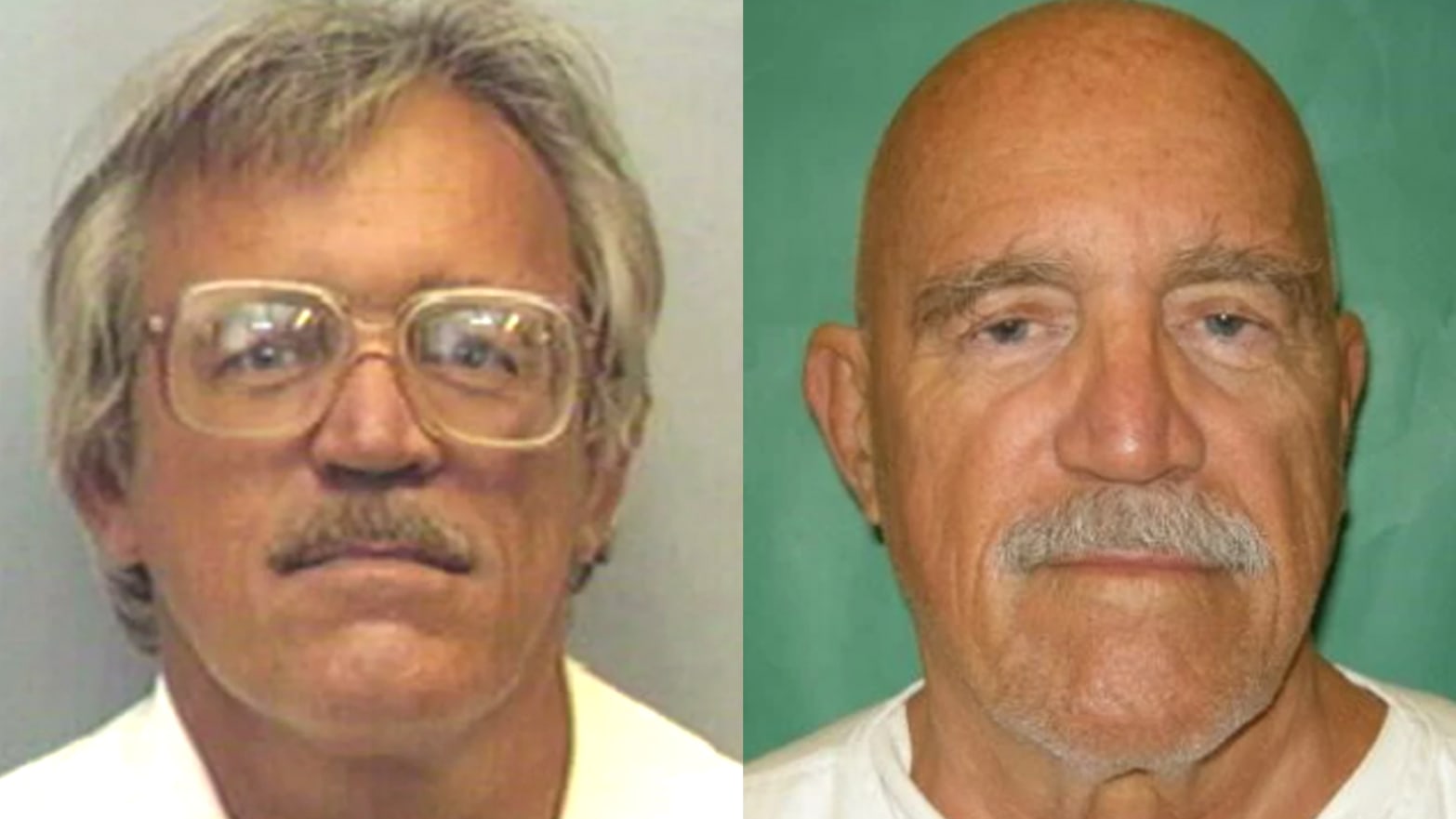



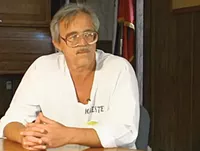

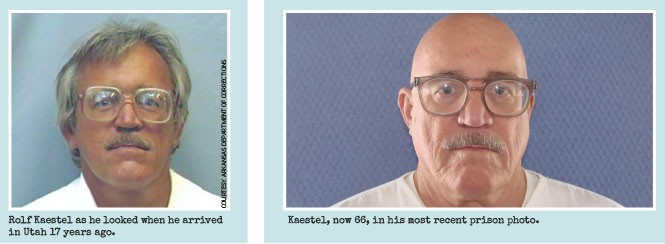
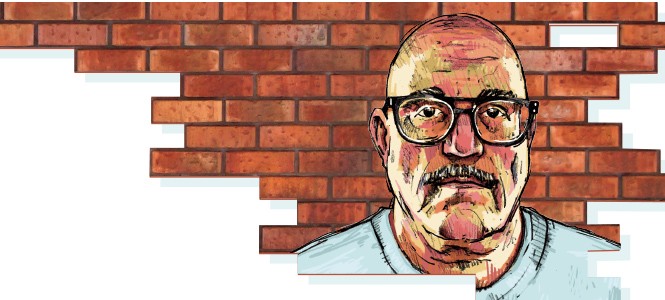
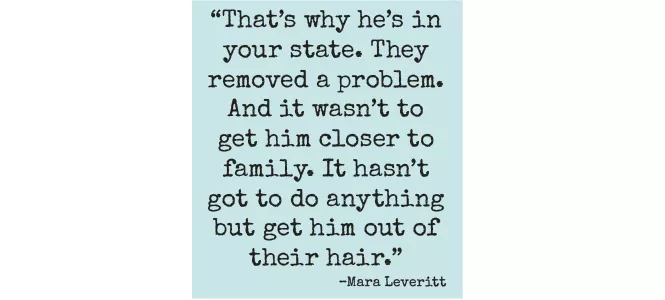


No comments:
Post a Comment